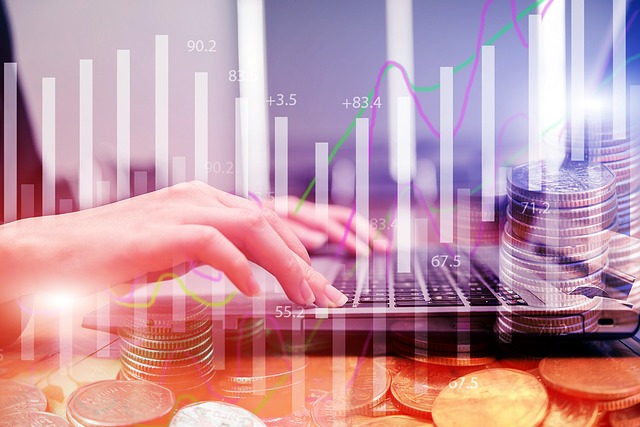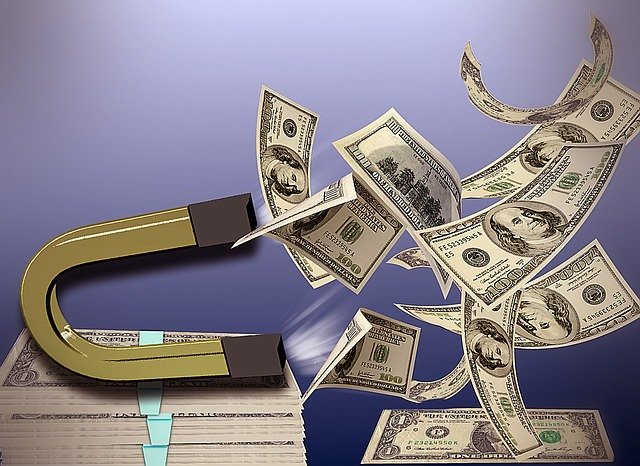Dynamic Pricing: Using AI To Manipulate The Customer
When it comes to advertising, it doesn't really work too well on me. Not because I don't like certain brands, there are plenty of times I wish I had a nice cold Coke sitting down on a sofa I bought from Ikea, watching the game on a nice 56-inch Samsung smart television with a bag of Tostitos chips and salsa. It's because I'm cheap. I see the two for one deal as a marketing ploy not as a opportunity to save money. You save money by not making the purchase. But what does this have to do with dynamic pricing? Well, as you see, things may be a lot cheaper for me than your ordinary practitioner of consumerism.

"To maximize revenues, you need sophisticated user profiling and
prices that are tailored to specific users" - Scientific Revenue
Dynamic Pricing Meets AI
Dynamic Pricing is not a new thing and the concept has been around since the invention of trade. One form of dynamic pricing can be seen in the rental property business where the prices increase during peak season and decrease during the off season. We also see dynamic pricing in booking flights and hotel rooms where one site might offer better deals than other site for the same flight or the same room.
In the grand scheme of things, we've been pretty accustomed to the price of a good or service changing due to some exterior circumstance, whether it be time, location, and a variety of other factors. But although traditional statistics has been able to give companies trends on human behavior, they haven't been really been able to discriminate different sorts of people through their spending habits until recently.
That's where AI and data collection come in! Based on your buying habits and other information that companies love to collect and sell to third parties, companies now have the ability to customize the pricing within different applications based on consumer tendencies to increase their likelihood of buying. This means if you are the type to just buy things at face value, you should expect to see higher prices than someone who bargain hunts and is hard to sell to.
With personalized pricing, an ethical question is raised. Is this fair?

"big data and machine learning make it possible to tailor ads, prices, and bundles
to individual users with a high degree of effectiveness" - William Grosso
The Ethical Question
Is it fair for one person to receive a certain price while another person gets a different price given the same external circumstances?
To put this into perspective, we have two customers of Joe's Pizzeria, which utilizes the latest and greatest in dynamic pricing software to make deals with his online customers.
Nancy is a regular at Joe's and the algorithm knows it. Thus, the algorithm boosts the price of all the pizzas by 10%, but knows that Nancy has purchased pizzas with similar rates in the past. She buys a large pizza for $16.50 instead of the normal rate of $15.00.
Dave is hungry for pizza but left a bad review online the last time he visited Joe's. But he really wants pizza and wants it for cheap. Given Dave's history, the algorithm displays an ad on his news feed for a $11.50 large pizza. Dave didn't really like Joe's last time, but the pizza is cheap so he goes on to order the pizza.
Both Nancy and Dave ordered the same pizza, but were given different deals based on their past behavior. Is it fair that Nancy paid five more dollars for the same pizza because the data said she would?
Now, we aren't seeing the practice in your local pizzeria but we are seeing the practice coming into prominence in the gaming industry. Scientific Revenue (the company I quoted above) utilizes this technology to encourage more people to spend in mobile games via microtransactions. An industry that once developed for entertainment now develop games that milk the customer. But milking the customer isn't the issue. The issue is that those most vulnerable of being milked will be milked the most and at a higher rate than less susceptible people.
But the free marketer argues that it is the choice of the person to purchase a good or service. And that is certainly true. But if we are going to be sold the exact same thing given the exact same circumstances, is it fair to punish those who are most willing and likely to defend and promote your product? We'll see if this catches on. At the very minimum, you are now aware about the technology and hopefully you are at least more cautious with your personal data.
Sources:
Jim Sterling - Turning Players Into Payers
Logistics Image
Money Image
Scientific Revenue
Pros of Dynamic Pricing
Oh man, I totally see this on a daily basis. For me, I always just look at the raw $x per oz/lb when comparing two products or similar products, as well as quality. A lot of the time I will look at that first before I ever look at the "price". Also being in the service industry, if I have a customer who I have had good experience with, I am WAY more inclined to give a discount, just for being cool.
This gem of a post was discovered by the OCD Team!
Reply to this comment if you accept, and are willing to let us share your gem of a post! By accepting this, you have a chance to receive extra rewards and one of your photos in this article may be used in our compilation post!
You can follow @ocd – learn more about the project and see other Gems! We strive for transparency.
If you would like your posts to be resteemed by @ocd and reach a bigger audience, use the tag #ocd-resteem, it doesn´t have to be the first one. Every day, three posts using this tag will be chosen by our curators to be RS. Good Luck!
LOL, I definitely look at price per unit on different products to get the best prices on stuff I have to buy. Giving customers discounts because they are cool is also a good example of dynamic pricing and is a good way to practice it. Too bad AI doesn't look for cool people, they look to maximize profits. I wonder though if maximizing the customer experience would be better long-term.
Feel free to share this post as you please. I will definitely check out @ocd. Always looking for more sources of quality content I can curate and reward.
I'm not too sure, I feel like personally if I was getting a higher rate, I simply would not buy it (assuming I could figure out that others were getting a better deal through information sharing websites, which is bound to pop up concerning dynamic pricing). The other big example that already happens is in scalping, where some people want a product, (almost) no matter what! In that case, they have no problem with it, but there is market inefficiency where middle men are taking a cut. Should that be going to the producer instead? Dynamic pricing might help there too...
I feel that most people that would seek out rates through information sharing websites would not be getting the higher rates (unless their model / AI was broken). Some of the rationale is to lower the price to people who wouldn't normally buy things. As in video games, there are people who pre-order without regard to the quality of the game. These are more likely to be the people targeted by rate hikes. Thus, when a DLC comes out, they may offer it for $25 to die hard fan who pre-ordered it versus $20 to someone who bought the game after the release and regularly pays the game.
In all honestly, these differences are more likely to be more subtle and the more educated the populace are, the less likely they are to get ripped off. Unfortunately today, people regularly get ripped off.
With regards to scalping, that is a good example of dynamic pricing, although today you aren't discriminating based on user preference, rather on time. Scalpers are simply adjusting to demand. It may seem a little unfair, but at the end of the day, Person A and Person B are going to get the same initial offer for a ticket given the same time and same circumstances.
In terms of using dynamic pricing to prevent ticket scalping, you don't really need AI, but can impose a penalty for additional tickets purchased within a certain time window by a certain entity. Which in itself is a interesting idea.
Hmm, I see, this is about even further customizing the price on top of the temporal and environmental factors and looking at individual factors. That seems likely to raise the issue of inadvertently discriminatory pricing based on gender, race, etc? :)
I'd say with the current laws this could come into conflict.
I definitely could see how an model could inadvertently learn to discriminate on gender and race (as some marketing is targeted to some demographics). But if there is no explicit discrimination (using gender and race as attributes in your model) I would imagine that it would be hard to make a legal case against the companies.
For the most part, however, I think the models will mainly focus on spending habits and purchasing behaviors.